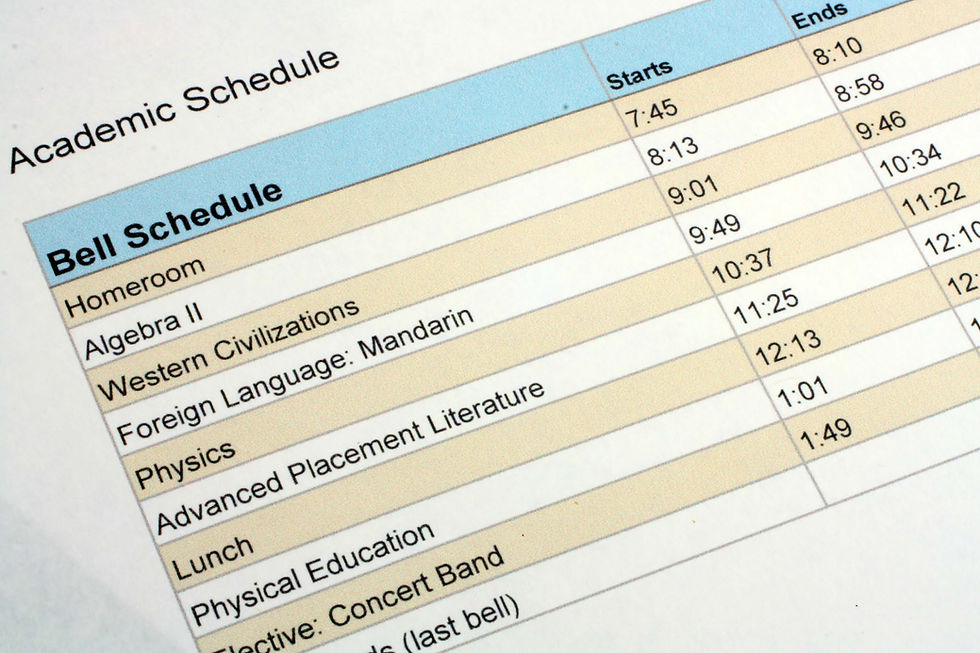Know your Regional Admissions Reps!
- Alison Merzel

- Nov 16, 2021
- 3 min read
Many colleges and universities divide their admissions offices into states or territories, designating specific staff members to be responsible for the recruiting and/or admissions of students from these areas. The recruiting staff are the individuals who (prior to COVID) travel around the country to visit high schools and represent their institution at college fairs. They field the questions from students who attend particular high schools or live in cities within their assigned territory and may or may not have anything to do with the application review process. Admissions counselors often read the applications from students in their assigned area and may be on the admissions committee, having the chance to advocate for their "favorite" applicants. For this reason, it cannot hurt to make yourself known to the local or regional admissions representative.
Within a state, the large public universities typically break down areas either region, city, or county.
The Ohio State University has a Central Ohio admissions counselor, for example, but given the application volume from Columbus and the size of some of the Columbus suburban school districts, there is a counselor just focused on Columbus City Schools and specific Columbus suburban high schools.
The University of Cincinnati has 5 admissions counselors who take responsibility for a few Ohio counties each.
Private colleges do not see the same volume of in-state applications as public institutions, so they typically don't have the same need to break down the state even further. Oberlin College does have three Ohio admissions representatives - one for Central and Southeastern, one for Northern, and one for Southwestern Ohio. Kenyon College, however, has one admissions representative who covers all of Kentucky and Ohio.
Out-of-state public universities may have one or more admissions representatives assigned to your state. This information can give you a couple of clues about the institution's application volume and class composition from your state. The University of Michigan has two Ohio admissions representatives. That tells us that they probably get a substantive number of applicants from Ohio and that they have invested money in assigning admissions staff to work just with Ohio students.
While students are certainly more mobile now and do attend colleges/universities all around the country and around the world, it is still the case that the majority of students enroll in schools close to home - if not in their state, then in states within driving distance. So, it makes sense that the University of Michigan has two representatives just for Ohio while the University of Florida recruiter handles Ohio along with Iowa, Maine, Missouri and Wisconsin.
Since COVID shifted so much of the recruiting process to virtual platforms, it gave students a greater opportunity to connect with their regional admissions representative via email, chat, video, and online information sessions or virtual panels. If an admissions committee is reviewing a pool of applicants from your high school, it will be much easier for the rep to advocate for you if you have initiated contact and made yourself known. Previously, the opportunity to "meet" the admissions representative was more limited to students who had the means to travel to campus physically. Now, anyone with an internet connection can find a way to reach out and say "hello."
I do not recommend literally sending a note to say "hello." These people are extremely busy. However, I do recommend that you think of a question that cannot be answered via Google or the university website. Come up with a meaningful question to ask the admissions representative and introduce yourself in the process of asking it. If they have a visit calendar published and are planning to travel again, find out when they will be in your area. If they are coming to town, make an effort to go to the college fair or event they are attending/hosting to meet them.
I know from reviewing thousands of applications that having a personal interaction attached to the words on the page really does make a difference. The applicants who engage with the admissions office are naturally going to be more top of mind because there will be a familiarity - "Oh, I remember Scott. He stopped by our table at the college fair in Columbus. He was the one who..." Or, "Leslie was the one on the video chat who showed us her new puppy." Admissions professionals are looking for students and they are looking for reasons to admit students, not to deny them. Make their jobs easier. Make yourself known!


